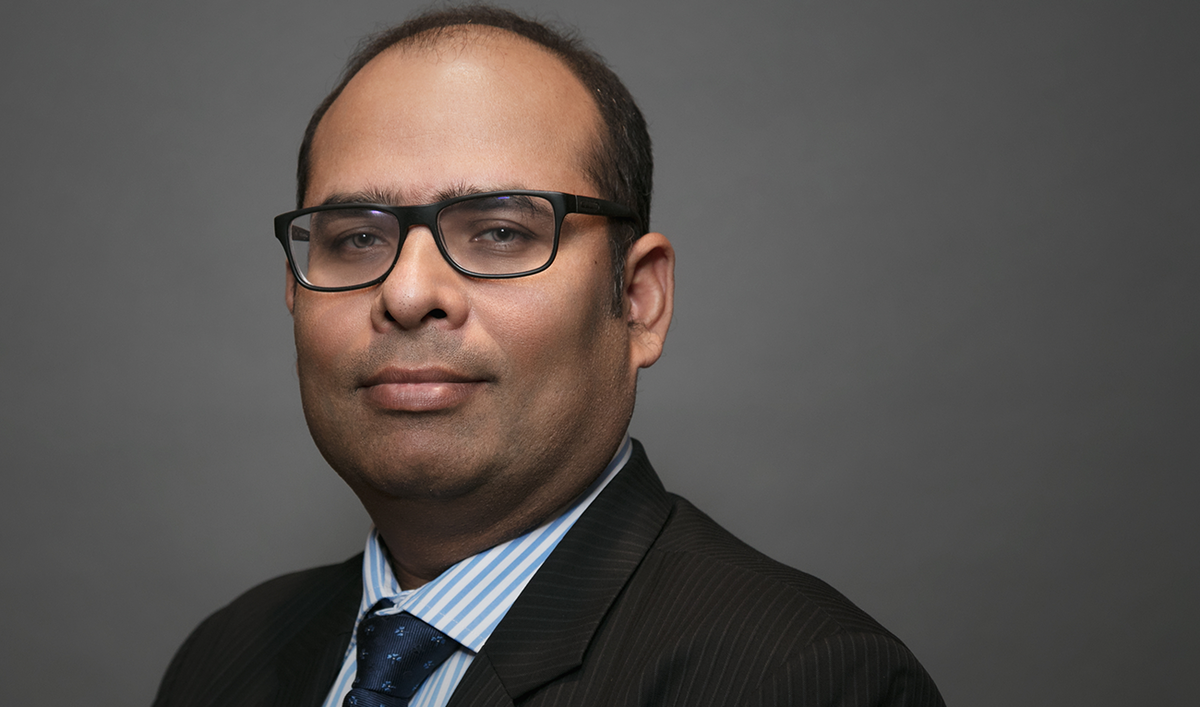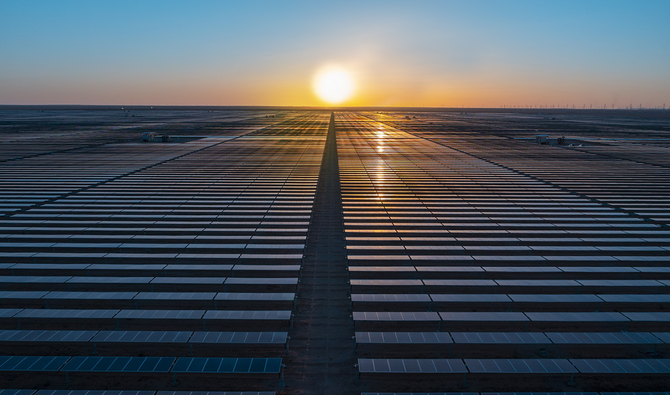RIYADH: ACWA Power, the utility developer backed by Saudi Arabia’s Public Investment Fund (PIF), is planning to invest $16 billion in new projects around the world in 2021, ahead of plans for an initial public offering (IPO).
Early last year, CEO Paddy Padmanathan said the company planned to invest $10 billion in new projects in 2020. In light of the restrictions put in place by global governments as a result of the coronavirus (COVID-19) pandemic, some of these plans took longer to materialize.
“The only challenge that we had on the new growth business is that some of the transactions where we were successful have taken anywhere between three to six months more in coming to what I would call the end of the development phase, which is the financial close and start of the construction,” Rajit Nanda, ACWA’s chief portfolio management and interim chief investment officer, told Arab News.
“We did approximately $3.5 billion of projects during the course of 2020, taking them through to financial close, and during the course of 2021 we are targeting about $16 billion of projects under close, four of them have already closed actually, a couple of them closing in the next 30 days as we speak.
“We are doing exactly what we would have wanted to do in 2021, plus we are doing a little bit more of what we should have got done in 2020. So, there is some spill-over,” he said.
The investment officer said ACWA Power’s main geographical focus is the Gulf Cooperation Council (GCC), with Saudi Arabia at the core of it, but it is also looking at opportunities in Africa and at markets in Central Asia and parts of Southeast Asia, such as Vietnam, Indonesia and Bangladesh.
At the end of last year, ACWA Power announced it will develop Azerbaijan’s first wind power development in collaboration with local entities, as part of joint energy projects with the Kingdom worth $300 million.
“We already have very important positions in countries like Egypt and Morocco. But we are looking at a few other countries, like Senegal and Tunisia and so forth, in terms of our expansion objectives,” Nanda explained.
Established in Riyadh in 2004, ACWA Power employs around 3,500 people and is currently active in 13 countries in the Middle East, Africa, Central Asia and Southeast Asia. Its portfolio includes 64 assets with an investment value of SR248 billion ($66 billion).
“The company has gone through some very interesting dynamics in terms of evolution. One of them, which is a very important one, is the fact that the sovereign wealth fund of the Kingdom of Saudi Arabia is now a 50 percent important shareholder in ACWA Power,” Nanda said.
Its association with PIF means the company has been able to win some major contracts related to the Kingdom’s Vision 2030 megaprojects. One of the most prominent recent examples is the $6 billion hydrogen project, in partnership with NEOM and Air Products.

Rajit Nanda
The project is now in its early stages, with completion expected by 2025. In an interview with Asharq News, the Chairman of ACWA Power Mohammad A. Abunayyan, said: “NEOM city enjoys a strategic location for renewable energy, especially with wind and solar energy, which will enable the joint venture to convert renewable energy into green hydrogen with new technology for the first time. This project benefits not only NEOM but the whole world, as its green energy products will be exported everywhere.”
This joint venture will produce 650 tons per day of carbon-free hydrogen and 1.2 million tons of green ammonia per year, reducing carbon dioxide emissions by the equivalent of 3 million tons per year.
Another major win in the Kingdom was the awarding of a contract from The Red Sea Development Company (TRSDC) to design, build, operate and transfer the Red Sea Project’s utilities infrastructure, one of the Kingdom’s flagship new tourism projects
This will be the region’s first tourism destination powered solely by renewable energy. The contract includes the provision of renewable power, drinking water, wastewater treatment, solid waste management and district cooling for the 16 hotels, international airport and infrastructure that make up Phase 1 of the Red Sea Project.
To fund its ambitious pipeline of projects, ACWA Power last month raised SR2.8 billion from its first sukuk issuance. The sukuk will have a seven-year tenor and was 1.8 times oversubscribed.
“Being in a capital-intensive business (such as) power generation and water, it is part of our business model to continuously evaluate the funding options that are available to us,” Nanda said. “We have established our connections with the debt capital markets. We have put ACWA Power in front of these high-quality investors and that chain of relationship is now established.”
While Nanda would not give any further details on ACWA Power’s long delayed IPO, the Capital Market Authority last week gave the green light for the listing of an 11.1 percent stake. The approval remains in place for six months, but chairman Abunayyan said in November he expected the IPO to happen by the end of 2021.
















